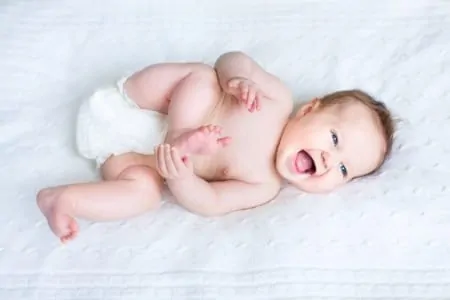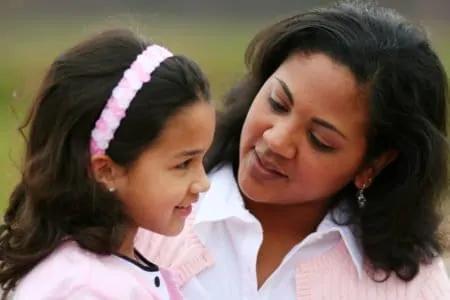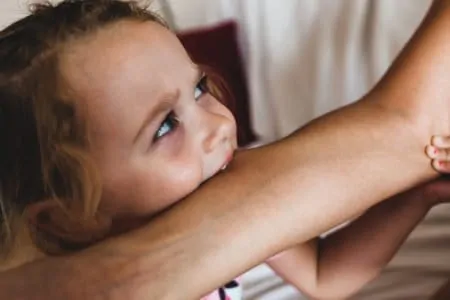If you have the latter, you might feel like you are doing something wrong. You aren’t.
It often comes down to temperament. Understanding your baby’s innate personality is the secret to preserving your sanity. It helps you stop fighting their nature and start nurturing them in the way they need most.
Key Takeaways
- Nature vs. nurture: Temperament is biologically based and visible from birth; it is the “how” of behavior rather than the “why.”
- The nine traits: Doctors identify nine specific traits, including activity level, sensitivity, intensity, and adaptability.
- Three main categories: Most children fit into one of three buckets: Easy (flexible), Difficult (spirited), or Slow-to-Warm-Up (cautious).
- Goodness of fit: Success relies on adapting your parenting style to match your child’s specific temperament rather than trying to change who they are.
What Is Temperament?
Temperament is a set of inborn traits that organize how your baby approaches the world. It is the specific behavioral style visible to parents within the first few days of life.
While personality includes values and learned behaviors developed over time, temperament is the biological foundation (1). It determines how your child reacts to sensory stimuli, how easily they regulate emotions, and how they adapt to change.
Think of it this way: Temperament is the canvas, and your parenting style is the paint. You cannot change the texture of the canvas, but you can create a beautiful picture by working with it (2).
The 9 Temperament Traits
In a landmark study, researchers Alexander Thomas and Stella Chess identified nine specific traits that make up a child’s temperament. Identifying where your baby falls on these scales helps predict their reactions (3).
Here is a breakdown of the nine traits:
Activity Level
This refers to physical energy. Does your baby wiggle constantly during diaper changes and kick their legs while sleeping? Or do they sit contentedly in your lap and lie still in the crib? High-energy babies need plenty of space and time to move.
Regularity (Rhythmicity)
This measures the predictability of biological functions. Does your baby get hungry, tired, and poop at the same time every day? Or is every day a guessing game? Regular babies are easy to schedule; irregular babies thrive better with “routines” rather than strict clocks.
Approach or Withdrawal
This is your baby’s initial response to new things. Do they reach out for a new toy and smile at strangers? Or do they turn away, cry, and cling to you? Withdrawal is not “bad” behavior; it is simply a cautious nature that requires patience.
Adaptability
While “Approach/Withdrawal” is the first reaction, adaptability is how long it takes to adjust over time. A highly adaptable child settles into a new daycare quickly. A child with low adaptability may need weeks to feel comfortable in a new environment.
Sensory Threshold
This is how sensitive your baby is to physical stimuli like noise, texture, light, and temperature. Does a scratchy tag or a loud door slam cause a meltdown? Highly sensitive babies are easily overstimulated and may need a calmer, quieter home environment.
Intensity of Reaction
This measures the energy level of an emotional response. Does your baby giggle softly when happy and whimper when hungry? Or do they squeal with delight and scream with rage? High-intensity babies wear their hearts on their sleeves.
Quality of Mood
Is your baby generally positive and smiling, or do they tend to be fussy and serious? Some babies are naturally serious observers, while others are sunny and cheerful. A negative mood doesn’t mean you are failing; it is just their baseline outlook.
Distractibility
This trait determines how easily external events alter your baby’s focus. Can you easily stop them from crying by showing them a toy? Or are they locked in once they start? High distractibility is great for soothing a fussing baby but can make feeding times challenging.
Persistence and Attention Span
How long does your baby stick with a task when it gets hard? If they drop a pacifier, do they cry once and give up, or do they keep trying to reach it until they succeed? Persistent babies are tenacious but can be prone to power struggles as toddlers.
The Three Temperament Types
Based on the nine traits above, researchers grouped children into three broad categories. However, keep in mind that about 35% of children are a mix of these types and don’t fit perfectly into one box (4).
The Easy (Flexible) Child
These babies are the “unicorn” babies parents brag about. They represent about 40% of children.
Characteristics of the easy child:
- Regularity: They eat and sleep on a predictable schedule.
- Mood: Generally cheerful and pleasant.
- Adaptability: They roll with the punches and handle new situations well.
The Difficult (Spirited) Child
These babies often get a bad rap, which is why many experts prefer the term “Spirited.” They make up about 10% of children.
Characteristics of the spirited child:
- Intensity: They cry loud and laugh loud. Everything is big.
- Irregularity: They defy schedules and keep you guessing.
- Sensitivity: They are easily overwhelmed by noise and stimulation (colic is common here).
The Slow-to-Warm-Up (Cautious) Child
These children are often labeled as “shy,” but they are simply observant. They make up about 15% of children.
Characteristics of the cautious child:
- Activity: Generally lower activity levels.
- Withdrawal: They pull back from new people or situations initially.
- Adaptability: They adjust slowly and need time to watch before joining in (5).
Temperament Comparison Table
Identifying your child’s patterns can help you predict their behavior.
Here is how the three types compare across the main traits:
| Trait | Easy (Flexible) | Slow-to-Warm-Up | Difficult (Spirited) |
| Activity Level | Varies | Low to Moderate | High |
| Regularity | High | Varies | Low |
| Adaptability | Quick | Slow | Slow |
| Sensitivity | Low | Low | High |
| Intensity | Low to Moderate | Low | High |
| Mood | Positive | Serious | Negative |
The Concept of “Goodness of Fit”
This is the most critical concept for parents to grasp. “Goodness of fit” refers to the compatibility between a child’s temperament and their environment.
When there is a match, development thrives. When there is a mismatch, stress levels rise for everyone.
For example, a high-energy, spirited boy living in a small apartment with parents who demand quiet and stillness is a poor fit. That same boy in a home with a big backyard and parents who encourage rough-and-tumble play is a good fit.
You cannot change the child’s nature, so you must adjust the environment.
Pro Tip
Parenting Strategies by Temperament
Once you know your baby’s type, you can tailor your parenting style to minimize conflict and maximize connection.
Parenting the Spirited Baby
If you have a spirited baby, throw away the standard advice books. These kids need extra patience.
- Stay calm: You are their external nervous system. If you escalate, they explode.
- Prepare for transitions: Give warnings before changing activities. Sudden changes trigger meltdowns.
- Provide outlets: Ensure they have plenty of space to burn off intense energy.
Parenting the Slow-to-Warm-Up Baby
The goal here is encouragement without pressure.
- Respect their pace: Never force them to hug a stranger or jump into a new playgroup immediately.
- Arrive early: Let them watch from the sidelines before things get chaotic.
- Stick to routine: Predictability makes them feel safe enough to explore.
Parenting the Easy Baby
These babies are a breeze, but they have a hidden risk: they often get ignored because they demand so little.
- Initiate interaction: Don’t wait for them to cry. Engage with them proactively.
- Check in emotionally: Just because they aren’t screaming doesn’t mean they don’t have needs.
FAQs
In Conclusion
Raising a child is not a one-size-fits-all endeavor. Whether you have a flexible baby who smiles at the mailman or a spirited one who treats every nap like a hostage negotiation, they are exactly who they are supposed to be.By understanding their temperament, you stop taking the hard days personally. You realize that your spirited child isn’t “bad”, they are intense. Your shy child isn’t “rude”, they are cautious.
Adjust your expectations, embrace their unique design, and find the parenting groove that fits your specific little human.






